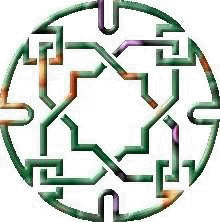

|
|

Philosophers of the Arabs

Kassem
Amin (1863-1908), one of the leaders of modern Arab renaissance, known as the
liberator of the Arabic Woman and one of the founders of the first modern
Arabic University in the whole region, Cairo University.
His Life
Kassem
Amin was born in
After
his graduation he worked for a short period as a Lawyer before traveling to
His intellectual life and Thought
Kassem Amin returned from
Apart
from his central theme, he was a judge and an eloquent writer, and a reformist.
He participated actively in the early call for the foundation of the first
Arabic university,
His
Call for Liberation of Women
Kassem's
vision was that raising the status of women, through education as well as
participation in undertaking her responsibility toward society is the correct
starting point toward reform and advancement. For, women represent half of the
society, from one side, and they bear the burden of raising the children, and
shaping their values from the other. Then if we seek enlightened positive
members of the society, we should first guarantee positive participation of
women in the society.
Hence,
as a culmination of his social analysis of the Egyptian society, he published
his extremely controversial book, at that early time, 1899, "liberation of
the woman". In this book, courageously and knowing the hardships he is
going to face, he addressed several issues concerning the status of women in
Islam in an Islamic scientific manner. Amongst such issues, the right of
divorce, complete and head veil, social relations between man and woman, and
the woman right of work and participation in the society. He based his call on
the natural freedom and equality of both sexes (genders), for which he was
inspired by his study in
As expected the book caused a huge controversy
and a series of intellectual as well as common people's rejection. Many
articles and several books written by several major thinkers were written
against his call. Surprisingly he did not retreat and replied by publishing
another book, on 1901, recording his scientific and religious replies to his
critics, and requesting full political wrights for women titled "the new
woman".
His Books
·
"The Egyptians".
·
"The Liberation of the Woman".
·
"The New Woman".